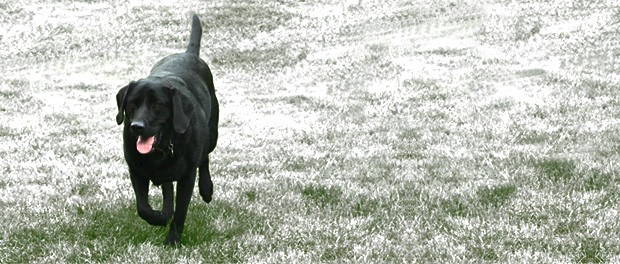Keeping Your Dog’s Skin and Paws Healthy This Winter

Winter can be tough on your dog’s skin and paws. Cold weather can cause irritation and discomfort. Here are some tips for protecting your dog against the elements this winter.
Keep Your Dog’s Paws and Nails Well Groomed
A good grooming routine is vital for keeping your dog’s paws healthy during the winter. In particular, the fur between the paw pads should be kept short and on an even level with the pads so that ice balls are less likely to form. This can otherwise lead to pain and trauma for your pet. Nail trimming is another important aspect of winter grooming, not least because longer nails will also increase the chances of ice and snow being able to get between the paw pads and cause distress.
Protect Against Frostbite and Hypothermia
In cold weather, frostbite and hypothermia can become a problem – especially if your dog is spending time outdoors. Avoid taking your dog on long walks when the weather is bitter to reduce the dangers. You can also protect them against the elements by encouraging them to wear a doggy coat. Some dogs are particularly prone to feeling the effects of cold weather and will benefit from wearing a dog coat in cold weather.
Grit and Chemicals Can Irritate Paws
Grit and salt is often put down on pavements during the winter to improve grip and safety but this can have different problems for your dog’s paws. Grit can easily cause irritation and pain as it can encourage the paw to dry out and ultimately crack. Chemicals that your dog comes into contact with during pavement walks can also cause discomfort.
The best way to protect against the risks is to stay away from pavements and roads that have been treated with grit and/or chemicals, along with those that are likely to have been. If this is not possible, you can guard against exposure via doggy bootees, which prevents grit and chemicals from coming into contact with them and also keeps them dry. These should fit securely enough to stay on without coming off without being so tight that they are uncomfortable and affect circulation. If you go down this route, it’s a good idea to encourage your dog to start wearing them around the house to gradually get used to having them on.
Use pet-safe de-icers on your own driveway and ask your neighbours if they will do the same. This will limit your dog’s contact with potentially toxic chemicals.
Get into the habit of cleaning your dog’s paws with warm water as soon as you come back from a walk to prevent irritation and stop them from being able to ingest chemicals and grit.
